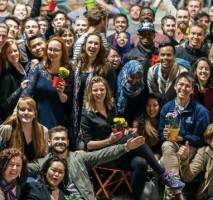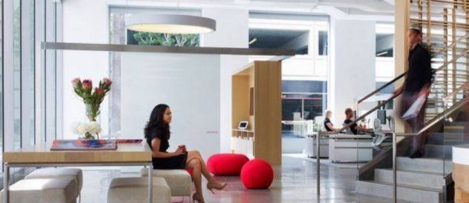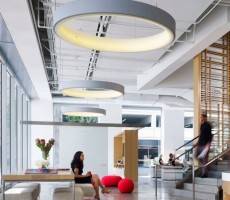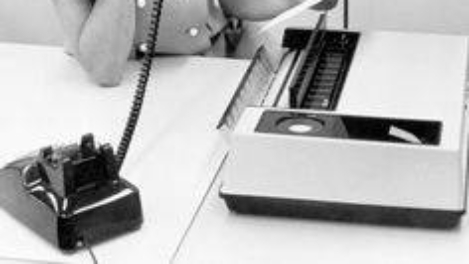May 27, 2016
Gallery: World’s first 3D printed office opens in Dubai 0
 The Government of Dubai has announced the opening of what it claims is the world’s first 3D printed office building, a project it first unveiled last Summer. China may take issue with them on that claim but the announcement marks yet another step in the development of the construction process towards mainstream use. The Emirate is using the 250 sq. m. Museum of the Future building as an example of how the UAE can lead the world in 3D building technology. A 3D printer took 17 days to print the building using a modified cement material in layers. The total cost of the print was US$140,000 excluding interior fit-out and furnishing. The developers also claim that there was a 50 percent saving on labour costs as the project only involved 18 people on site, mostly electricians and engineers. The design claims to achieve ‘a shift from the traditional form of work environments and provide greater opportunities to stimulate innovation and communication between workplace teams.’
The Government of Dubai has announced the opening of what it claims is the world’s first 3D printed office building, a project it first unveiled last Summer. China may take issue with them on that claim but the announcement marks yet another step in the development of the construction process towards mainstream use. The Emirate is using the 250 sq. m. Museum of the Future building as an example of how the UAE can lead the world in 3D building technology. A 3D printer took 17 days to print the building using a modified cement material in layers. The total cost of the print was US$140,000 excluding interior fit-out and furnishing. The developers also claim that there was a 50 percent saving on labour costs as the project only involved 18 people on site, mostly electricians and engineers. The design claims to achieve ‘a shift from the traditional form of work environments and provide greater opportunities to stimulate innovation and communication between workplace teams.’


































May 28, 2016
Insight weekly for the week of 27 May 2016 is now available to read online 0
by Mark Eltringham • Comment, News, Newsletter